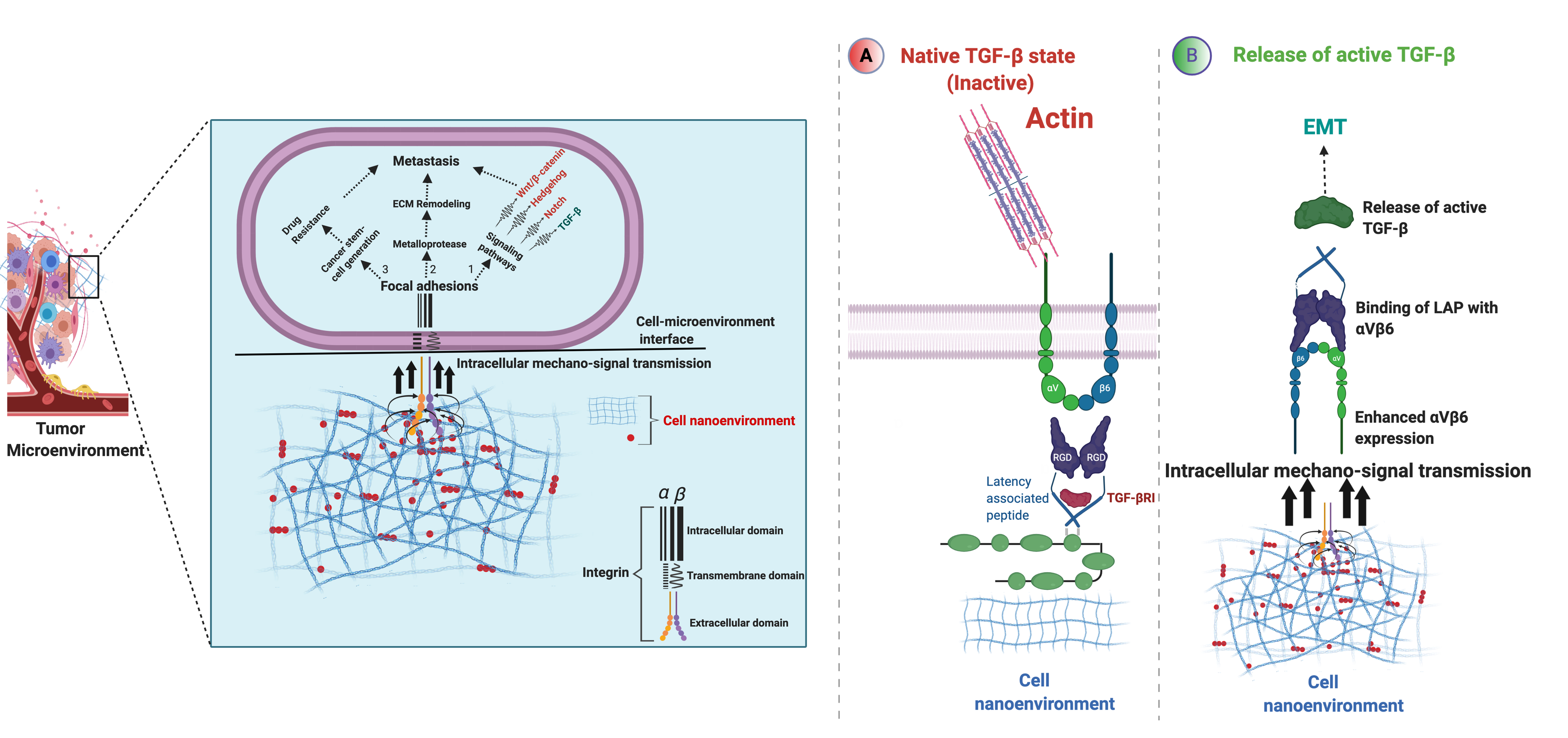Institute of Chemistry, Academia Sinica – Research
藉由機械傳導誘發整合素 αvβ6 和潛伏相關胜肽的偶合來活化TGF-β及調節癌症轉移及幹細胞特徵
Mechanostimulation-induced integrin αvβ6 and latency associated peptide coupling activates TGF-β and regulates cancer metastasis and stemness
Nano Today 2023, 50, 101882.
Udesh Dhawan*, Wei-Li Wang, Yuh-Charn Lin, Ruey-Bing Yang, Matthew J. Dalby, Manuel Salmeron-Sanchez*, Hsiao-hua Yu *

當自由遷移的癌細胞遇到新的物理性生理環境時會發生什麼?在這項開創性的研究工作中,我們發現在細胞遷移的過程中,可以利用機械傳導來誘發癌細胞轉移和癌症幹細胞的特性。通過利用不同尺寸的奈米結構作為機械傳導模型,我們在分子生物學層級去建立細胞物理環境來操控相關胜肽作用力以活化TGF-β。一旦被活化,TGF-β首先誘導上皮間質轉化(EMT),然後進一步調節癌症幹細胞特徵,導致癌細胞轉移。因此,機械傳導是可以用來誘導癌症幹細胞形成的。
What happens when freely migrating cancer cells encounter a new physical physiological environment? In this pioneering work, we show that migrating cells utilize mechanotransduction to attain metastatic and cancer stemness properties to orchestrate tumorigenicity. By utilizing varying topology sizes as mechanotransductive models, we show that cell physical environment mediates integrin-latency associated peptide interaction to activate TGF-β. Upon mechanical activation, TGF-β first induces epithelial-mesenchymal transition (EMT) which then transcends to regulation of cancer stem cell signatures which drives metastasis in-vivo. Thus, mechanotransduction is at the cornerstone of cancer stem cell formation.
